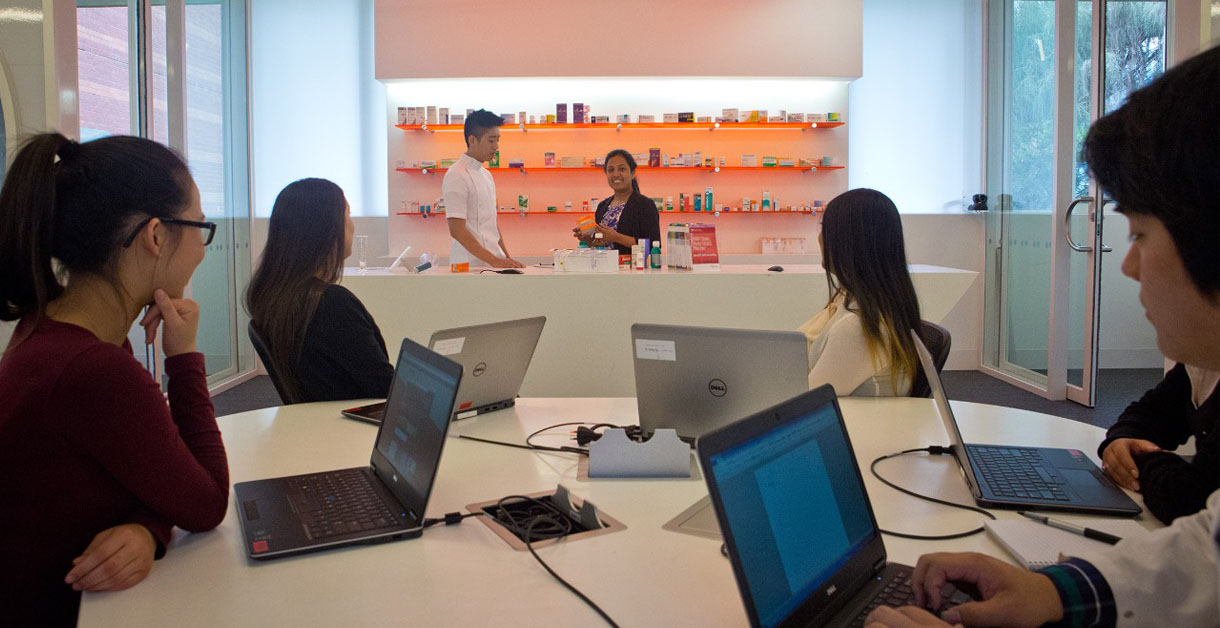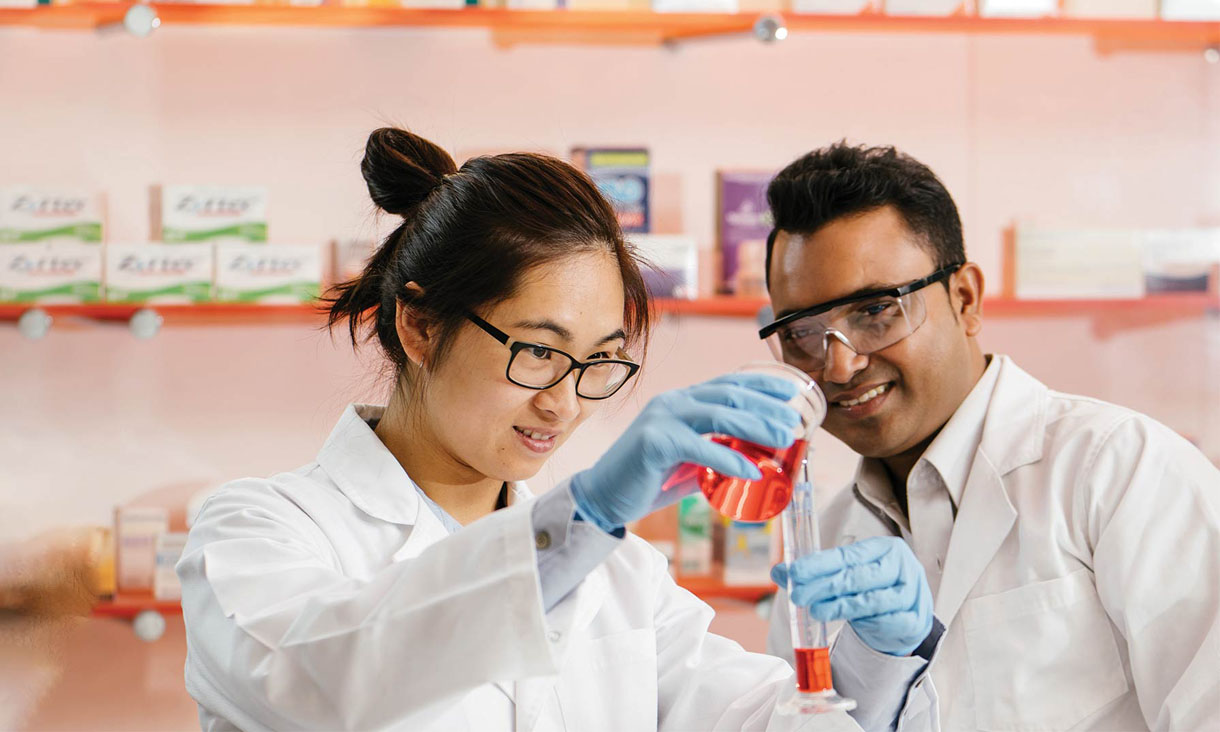Make a positive difference in health and wellbeing through the safe and effective use of medicine.
Pharmacists play a vital role in the medical community, ensuring the safe and effective use of medicine. In Australia, the pharmaceutical industry is Australia's leading technology exporter and forms an expanding multi-billion dollar sector.
“Pharmacists are board registered health professionals who are society’s medicines expert. We provide expertise and advice on medicines as well as health in general. Pharmacists are considered the most accessible healthcare providers in Australia,” says RMIT's Associate Professor of Pharmacy, Vincent Chan.


